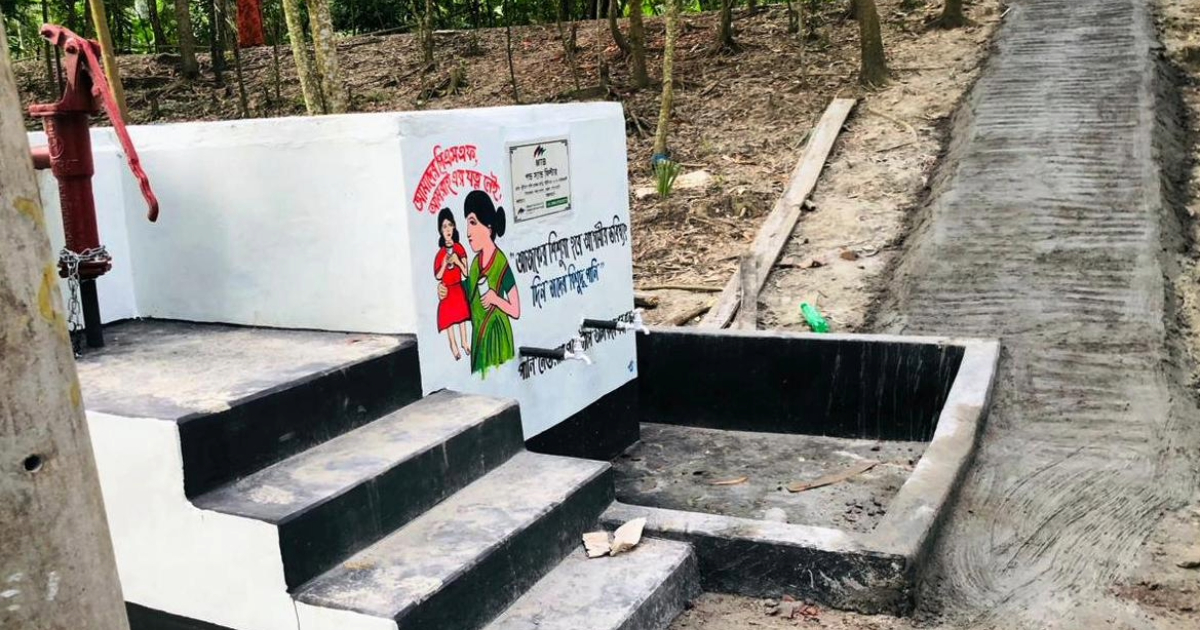
Water- without which life cannot exist often becomes the name of daily suffering for many in rural Bangladesh. While city dwellers can access water with a simple turn of the tap, in the coastal areas, people walk over three kilometers just to fetch a pitcher of water. In Sharankhola, many families still rely on pond water for survival.
For years, this was the harsh reality in the villages of Boghi, Purba Khuriyakhali, and Chalitabunia under Bagerhat’s Sharankhola upazila. The only source of safe water in the region- the Pond Sand Filters (PSF) had long fallen into disrepair. As a result, villagers suffered from an acute water crisis. Some began their day walking several kilometers with pitchers on their shoulders, while others resorted to filtering turbid pond or river water with alum to make it somewhat usable. Children frequently fell ill with diarrhea and other waterborne diseases, and the risk of such illnesses continued to rise.
To end this long-standing suffering, Lal Sabuj Society stepped forward. Volunteers from the organization held meetings with the local community to understand their challenges and pledged to repair the broken PSFs. This initiative was named “Water for All.”
On August 8, 2025, the courtyard of Boghi village turned festive as men, women, children, and the elderly gathered with anticipation. The focus of the courtyard meeting was the long-awaited dream access to safe drinking water. With support from Mutual Trust Bank, Lal Sabuj Society launched the “Water for All” project, restoring the village’s old PSFs and bringing a new wave of hope to the people of the area.
With a sigh of relief, Afsia Khatun, a homemaker from Boghi village, said, “It was so hard for us before. We had to bring water from the pond… Now, that hardship is gone. Lal Sabuj Society has made our lives much easier.”
Once the filters became operational, joy spread across the village. Children gleefully filled their glasses with clean water and drank with smiles of delight.
The next day, Lal Sabuj Society’s team reached Purba Khuriyakhali village, where resident Rukhsana Begum shared, “We suffered the most for water. We used to walk two to three kilometers early in the morning with our pots just to collect water.”
Not just Khuriyakhali- the people of Chalitabunia village are now also benefiting from this initiative. The ongoing efforts of Lal Sabuj Society have brought a new sense of comfort and well-being to coastal lives, marking a true victory of purity through community effort.
